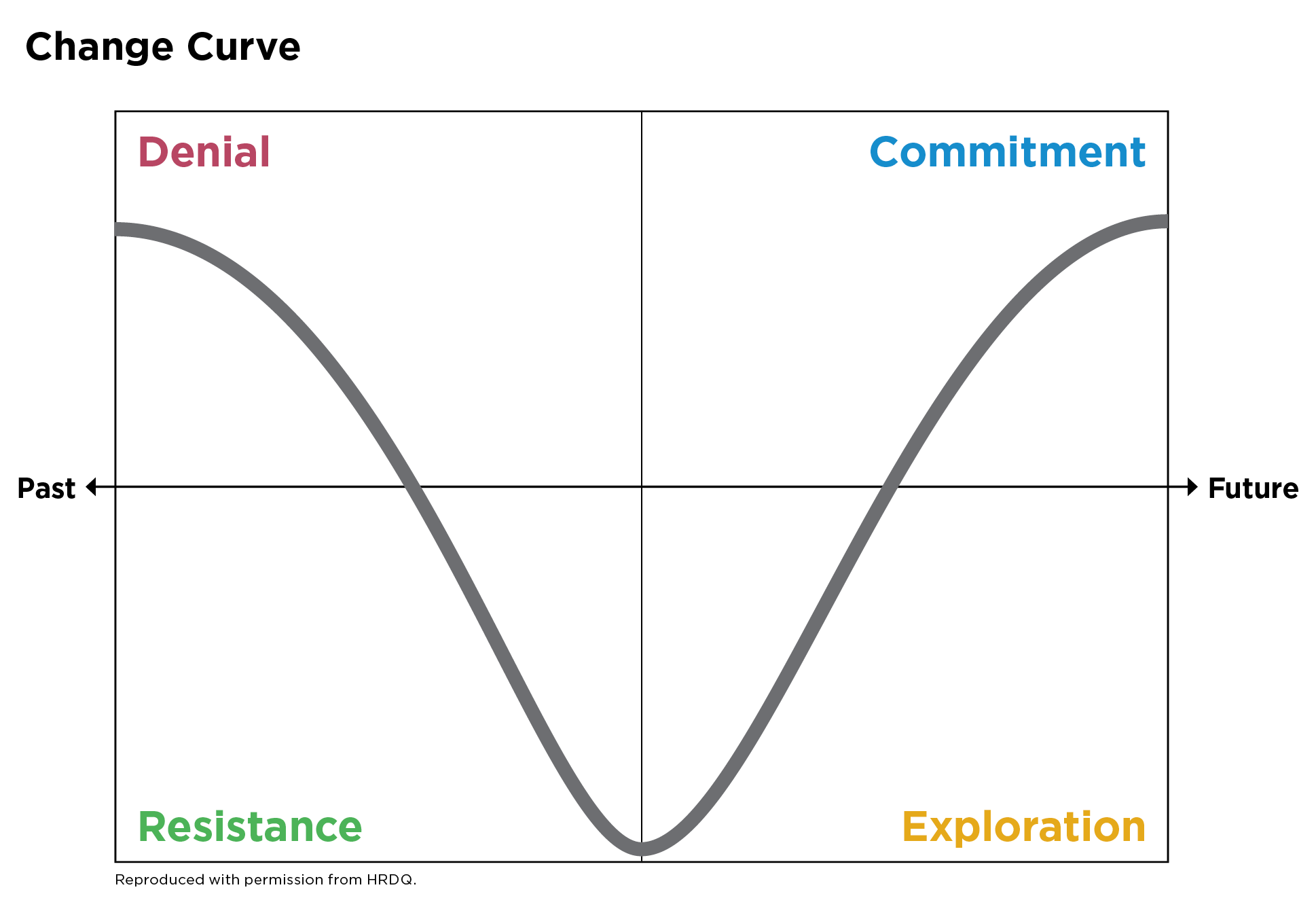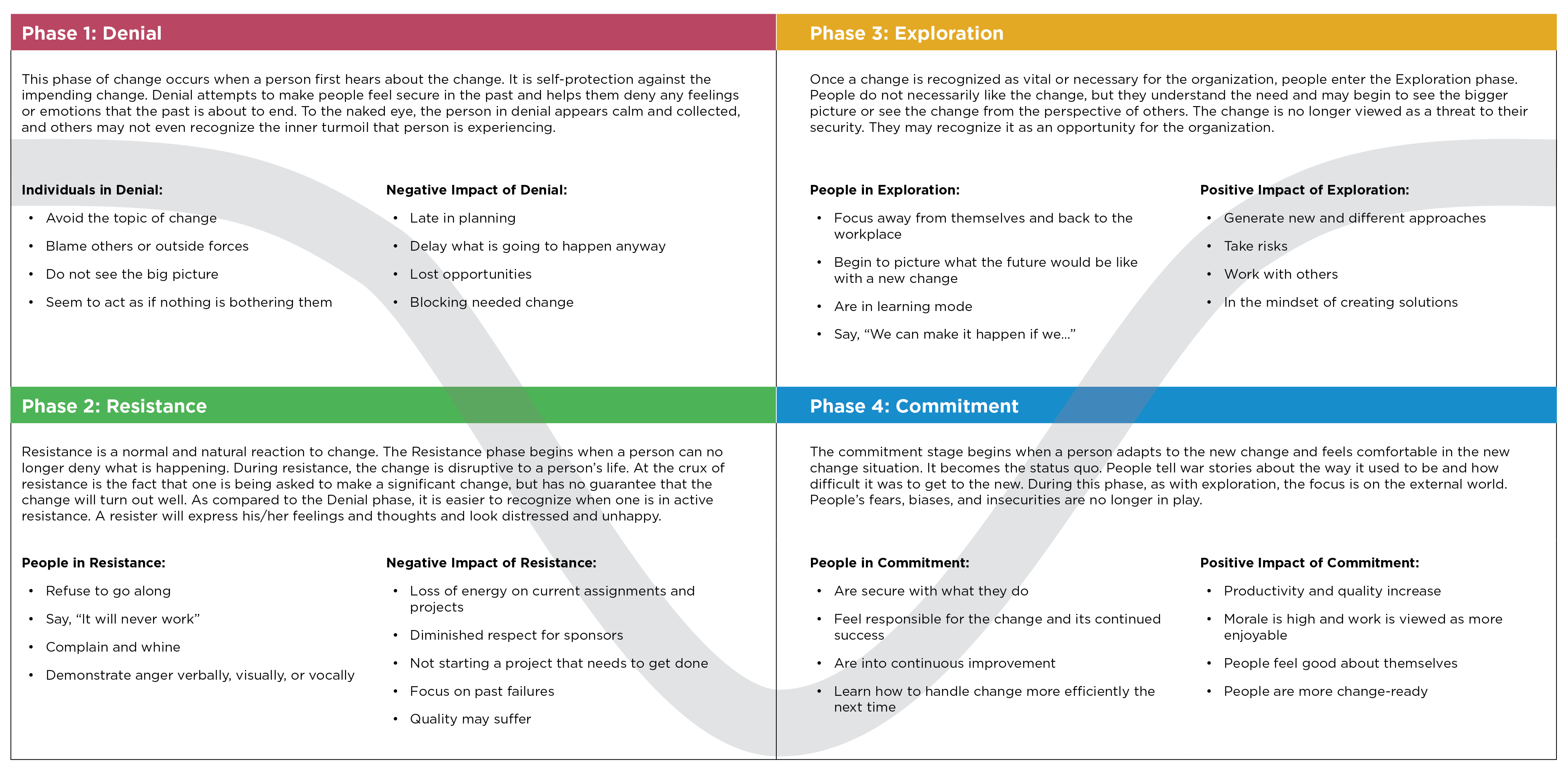If you’ve not heard of the change curve, this is a good time to become familiar with it as we navigate the COVID-19 pandemic. The change curve is a model that helps us understand how people respond to change and crisis. It was originally developed Elisabeth Kubler-Ross to explain the grieving process. Since that time, it’s been widely used by leaders to understand and anticipate how people respond to change.
Our natural resistance to change is driven by our need for security and certainty. Obviously, a pandemic such as the COVID-19 one not only introduces drastic change, but it disrupts our sense of security and throws us into an uncomfortable world of uncertainty. Understanding these phases can help you lead people more effectively during times like this one.
The model has 4 phases and can visually be depicted like this:

The Change Curve shown below represents a continuum through time from past to future, and the order in which the four phases are experienced: Denial, Resistance, Exploration, and Commitment. As you work to lead people through any change - whether it’s a typical organizational change or a transition from a pandemic crisis back to a ‘new normal’, your goal is to help individuals reach the commitment phase.
click here to view and download
In times of crisis, people don’t necessarily go through these phases in a one-time linear fashion. In the COVID-19 pandemic situation for example, individuals may have suppressed some of the denial and resistance as they attempted to quickly pivot their work and commit to executing necessary and time sensitive tasks. Those unaddressed emotions may still be lingering below the surface and interfering with their productivity and engagement. As a leader, it becomes important to unearth these obstacles and work together with your staff to address sources of resistance. The change curve gives leaders the language and understanding to have those conversations.
Additional resources related to change management:


